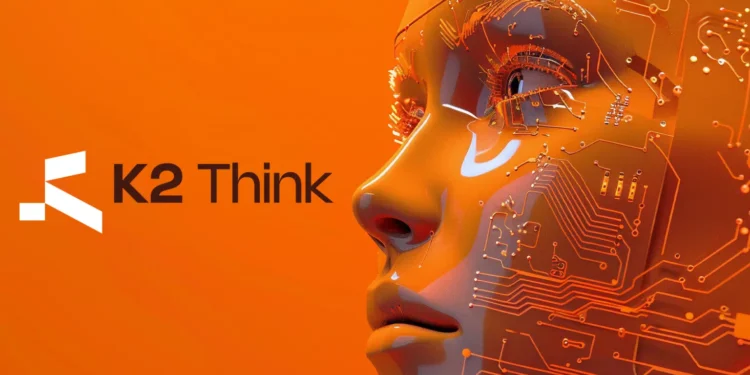K2 Think, a new reasoning model with just 32 billion parameters, outperforms systems 20 times larger on complex math and logic tasks.
The model now runs on AIREV’s OnDemand platform, giving developers worldwide access to this UAE-built technology. This puts advanced AI reasoning tools in the hands of smaller companies and startups at a fraction of the usual cost.
K2 Think Demonstrates UAE’s Growing AI Muscle
Mohamed bin Zayed University of Artificial Intelligence (MBZUAI) and G42 developed K2 Think. The collaboration shows how the UAE builds world-class AI systems through partnerships between universities and tech companies.
Global tech giants spend billions trying to make AI models bigger and more powerful. K2 Think proves that smarter design beats raw size.
Performance tests show K2 Think matching flagship reasoning models that need 600 billion parameters or more. The UAE model achieves this with innovative training methods and specialized hardware optimization.
OnDemand Platform Opens Doors for Developers
AIREV’s OnDemand platform now hosts K2 Think alongside models like ChatGPT, Claude, and Grok. Developers can build AI applications using any of these models through a single interface.
The platform works as an AI operating system and marketplace. Companies can create custom AI agents, then deploy them across different business functions. This approach reduces the technical barriers that often stop smaller firms from using advanced AI.
OnDemand emerged from a partnership between AIREV and Core42, a G42 subsidiary. The platform launched last year as one of the first agentic AI operating systems globally.
Technical Innovation Behind K2 Think’s Success
K2 Think uses six core innovations to achieve high performance with fewer parameters. The model employs “agentic planning” to break down complex problems before solving them. This mimics how humans approach difficult tasks.
The system also uses reinforcement learning with verifiable rewards. This training method helps the model learn from its mistakes on math problems where answers can be checked automatically.
Cerebras wafer-scale processors power K2 Think’s inference speed. These chips deliver 2,000 tokens per second, making the model both efficient and fast. The hardware choice shows how specialized chips can boost AI performance beyond traditional GPUs.
Open Source Strategy Sets K2 Think Apart
Most “open source” AI models only release their final weights. K2 Think goes further by publishing training data, deployment code, and optimization techniques. Researchers can study every step of how the model learns to reason.
This transparency helps the global AI research community understand and improve reasoning systems. The approach builds trust and enables independent verification of the model’s capabilities.
K2 Think joins other UAE-developed open source models including Jais for Arabic, NANDA for Hindi, and SHERKALA for Kazakh. The pattern shows the UAE’s commitment to multilingual AI development.
Regional AI Competition Heats Up
The UAE competes with neighboring countries for AI leadership. Saudi Arabia backs Humain AI development company, while Qatar pursues its own AI initiatives. All three nations have advantages in cheap energy and government funding.
This regional competition drives innovation and investment. The UAE’s approach through MBZUAI and G42 emphasizes open source development and international collaboration.
K2 Think’s performance on standardized tests confirms the UAE’s technical capabilities. The model leads all open source systems on AIME math competitions and other challenging benchmarks.
Business Impact of Efficient AI Models
K2 Think’s efficiency matters for real-world applications. Smaller models cost less to run and need fewer computing resources. This makes advanced AI accessible to companies that cannot afford massive data centers.
The model’s speed and accuracy combination suits applications like financial analysis, scientific computing, and educational tools. These domains need reliable reasoning more than creative writing or image generation.
OnDemand’s marketplace approach lets companies try different AI models for specific tasks. Businesses can switch between models based on performance, cost, and capabilities without changing their entire infrastructure.














